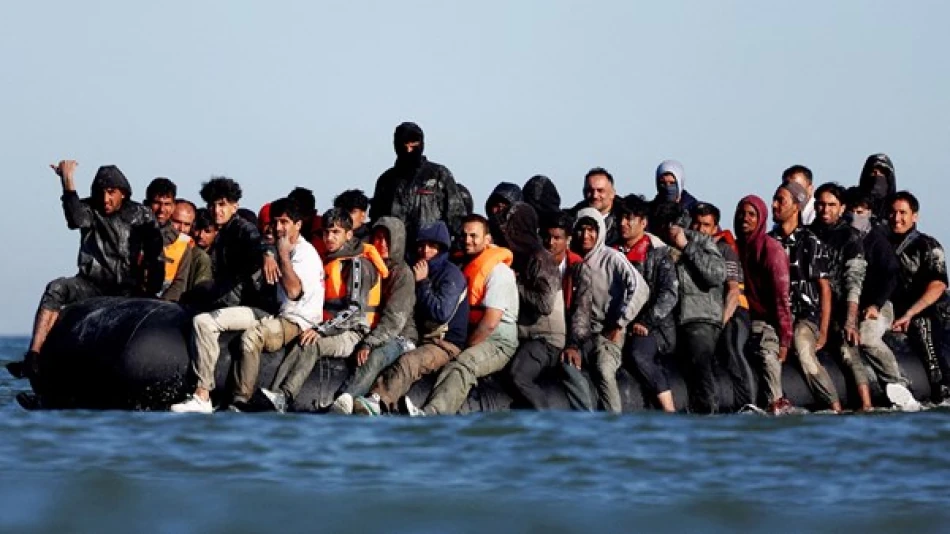
UK Deports First Migrants to France in Historic Move This Month
Britain's Bold New Immigration Gambit: Channel Returns Begin as Starmer Races Against Electoral Clock
Prime Minister Keir Starmer is accelerating Britain's most ambitious immigration overhaul in years, launching the first forced returns of Channel migrants to France later this month while pledging to empty asylum hotels before the next election. The move marks a dramatic shift from previous Conservative policies and could reshape how Europe handles cross-border migration flows.
The "One In, One Out" Experiment
Home Secretary Yvette Cooper unveiled the government's pilot program based on a "one entry, one exit" principle that represents a stark departure from Britain's traditional asylum approach. Under the new French-British agreement signed last month, the UK will return irregular Channel crossers to France while simultaneously accepting pre-verified, legal asylum applications processed through official channels.
This quid pro quo arrangement essentially creates a managed exchange system – a concept that mirrors similar bilateral deals between EU nations but represents uncharted territory for post-Brexit Britain's relationship with continental Europe.
Enhanced Security Screening
Cooper emphasized that all applications processed through this new pathway will undergo rigorous security checks before approval, addressing long-standing public concerns about inadequate vetting procedures. The enhanced screening process suggests the government is prioritizing security credentials over processing speed, potentially creating bottlenecks but improving public confidence.
Political Timeline Under Pressure
While the government officially committed to clearing asylum hotels by the end of the current parliamentary term in late 2029, Starmer's push to accelerate this timeline signals acute awareness of electoral pressures. Immigration consistently ranks among British voters' top concerns, and visible progress on hotel clearances could prove crucial for Labour's re-election prospects.
The Prime Minister's reluctance to specify a new deadline, however, suggests internal recognition that the logistics remain formidable. Britain currently houses thousands of asylum seekers in hotels across the country, with costs running into billions annually.
European Context and Precedents
This bilateral return mechanism echoes similar arrangements within the EU, where countries like Germany and Italy have negotiated migration-sharing agreements. However, Britain's post-Brexit position makes such deals more complex, requiring individual negotiations rather than EU-wide frameworks.
The timing coincides with rising anti-immigration sentiment across Europe, where countries from Denmark to Poland have tightened asylum policies. Britain's approach attempts to thread the needle between humanitarian obligations and border control – a balance that has proved elusive for most Western democracies.
Market and Administrative Implications
The hotel clearance program could significantly impact Britain's hospitality sector, which has relied on lucrative government contracts for asylum accommodation. Simultaneously, the new processing system will require substantial administrative investment, potentially creating opportunities for security and logistics firms specializing in migration services.
Success or failure of this pilot could influence similar arrangements with other European partners, potentially reshaping post-Brexit Britain's relationship with the continent around practical cooperation rather than political integration.
The Critical Test Ahead
The program's effectiveness will ultimately depend on France's willingness to accept returnees and process legal applications efficiently. Previous return agreements have often foundered on practical implementation challenges, suggesting this initiative faces significant operational hurdles despite its political appeal.
For Starmer's government, the stakes extend beyond immigration policy – this represents a test case for whether post-Brexit Britain can forge pragmatic European partnerships that deliver tangible results for voters increasingly skeptical of traditional political promises.
Most Viewed News

 Layla Al Mansoori
Layla Al Mansoori






